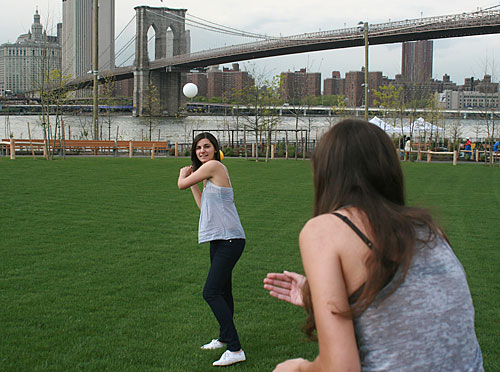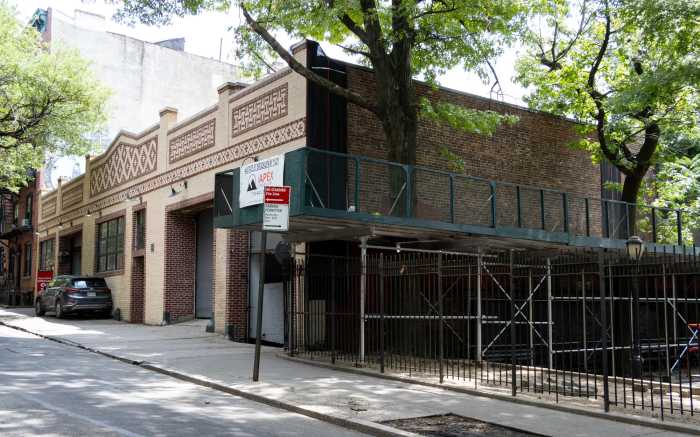Meet the new operating “entity” for Brooklyn Bridge Park — same as the old operating “entity” for Brooklyn Bridge Park.
That was the over-riding message delivered by critics of the city’s takeover plan for the $350-million waterfront development, which replaces the state’s development agency with a new city entity that will continue to build the greenspace and residential component without public input.
“The purpose is to eliminate the public,” Roy Sloane, a member of the Cobble Hill Association, said at a hearing on Monday night concerning the new city-overseen plan for the 1.7-mile stretch of green from DUMBO to Atlantic Avenue. “I am at a loss to find one way in which the public benefits by [the plan].”
Indeed, despite the city takeover, any development inside the park — necessary to generate funds for the park’s landscaping and maintenance — will still be conducted outside the normal public review process for land use.
The residential development of a lot on John Street, on the edge of the park in DUMBO, plus possible housing on Pier 6 at the foot of Atlantic Avenue, will be decided on by the new “entity,” which, like the current Brooklyn Bridge Park Development Corporation, will be headed by Regina Myer.
The main change, however, is that before any housing can be built, the new entity must undertake a supposedly transparent search for other ways to fund the park besides housing and other commercial ventures. That search is being led by entity member, state Sen. Daniel Squadron (D–Brooklyn Heights), who has veto power.
That means that the new entity is inviting some form of public scrutiny, Squadron said.
“I am sympathetic to those who are frustrated that the new governance structure creates another public authority with a complicated operating board,” Squadron said. “But with its composition of representatives from a greater number of elected officials … the [new entity] represents a more transparent and open process.”
But until the housing alternatives panel comes up with an operating stream that Myer and Mayor Bloomberg can agree with, opponents aren’t convinced that anything will change.
“No amount of finagling, of creating entities and sub-entities, not-for-profit corporations … and leasing agents can obscure the fact that all the city ‘entity’ is designed to do is to keep the public out,” said Judi Francis, president of the Brooklyn Bridge Park Defense Fund, a group that has long opposed the requirement that the park’s maintenance be funded entirely by commercial and residential operations within its footprint.

























